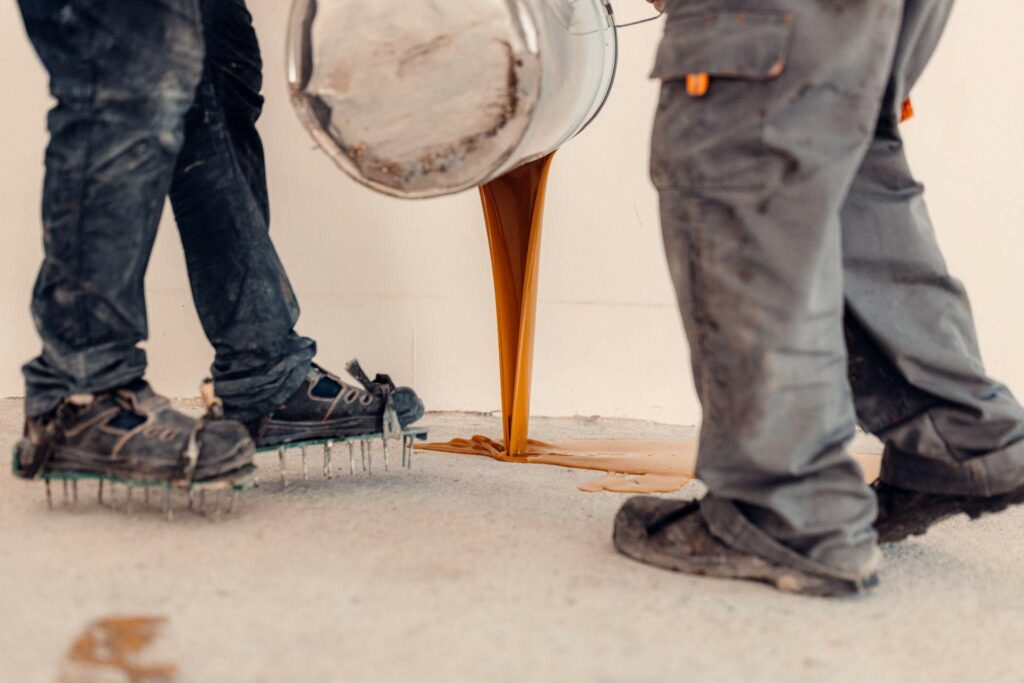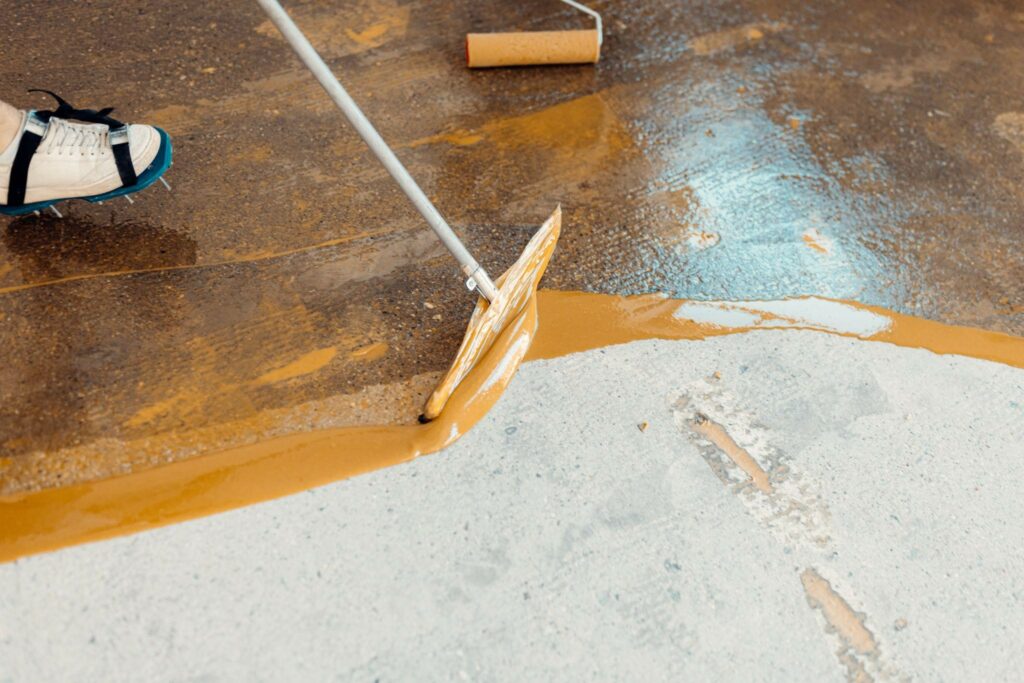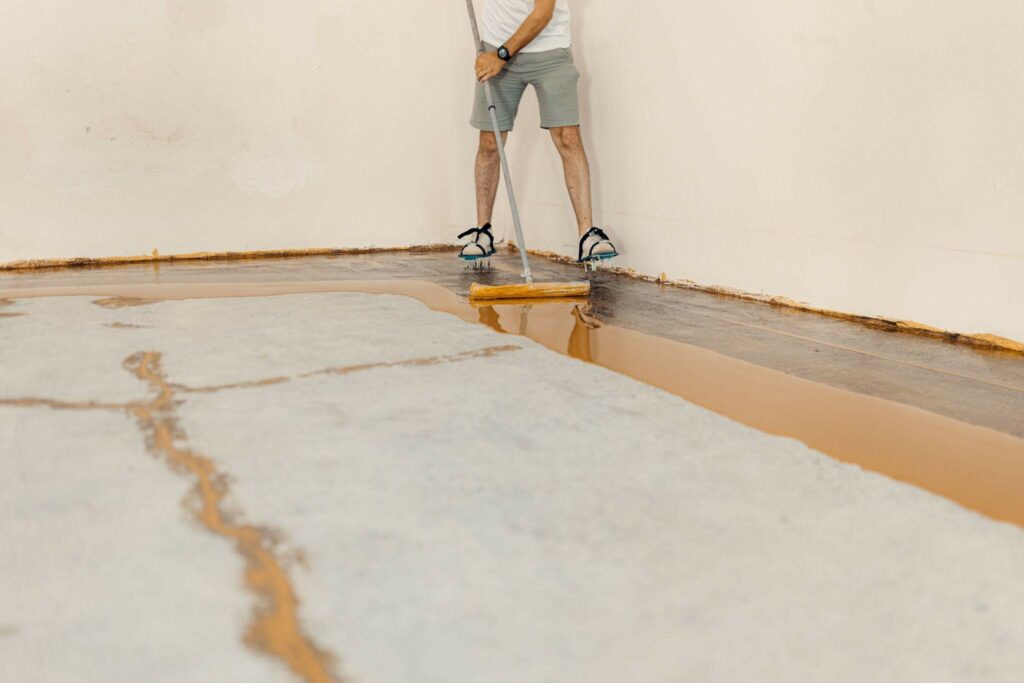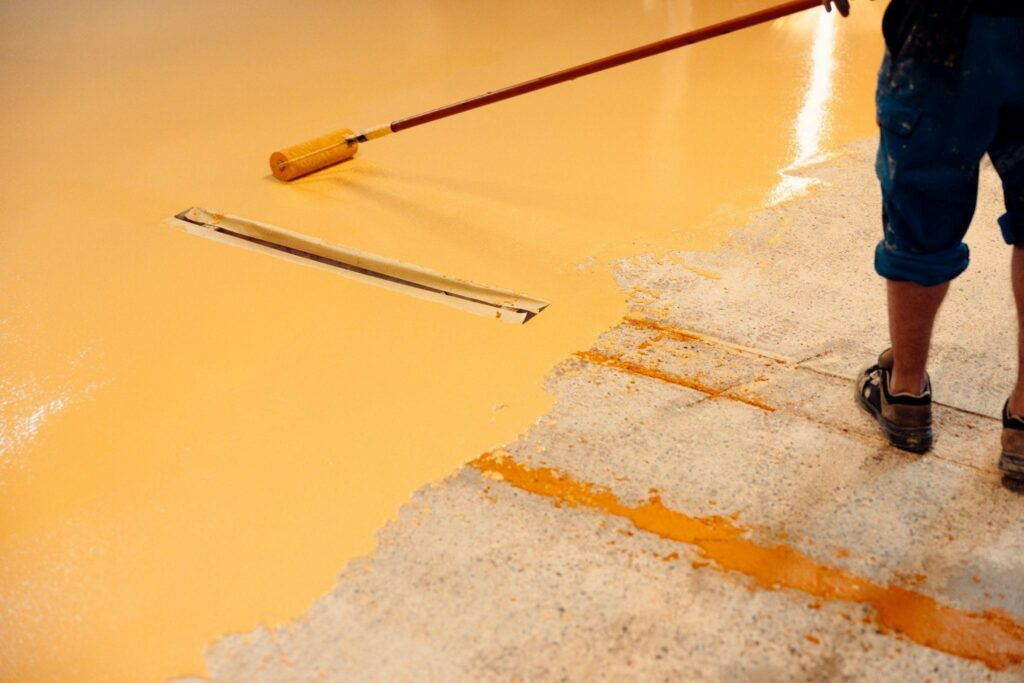Epoxy flooring coating has gained a lot of fame over the years due to its countless benefits, which are reflected by its growing demand in the flooring industry. It is the perfect choice for a durable epoxy floor coating, whether you want to upgrade your commercial space, garage, or basement. But still knowing whether it is the perfect option for your residential or commercial epoxy floors or not can be troubling. To make sure you make an informed decision, Babcock Restoration Services has created this comprehensive guide on epoxy flooring coatings to help you out.
Epoxy Floor Coating 101
The first thing you need to know is what epoxy flooring is. It is a smooth and high-performance floor coating system that has a sturdy and resistant plastic-like structure achieved by the combination of two-part epoxy resin and hardener mixture. Some professionals also define it as a synthetic resin floor system laid on concrete substrates for decoration or safety. Its traits make it the top choice for both industrial and residential epoxy flooring jobs.

Epoxy Resin Flooring: 5 Ways Strength Meets Style
If you’re considering spending your money on epoxy flooring coating, then knowing about the different styles and types of epoxy resins is a must. From anti-static epoxy to self-leveling options, there are so many options for homeowners and business proprietors to choose from.
Let’s analyze the five common types of epoxy flooring coatings as explained by the National Association of Floor Covering Technicians:
a. Something Aesthetic yet Durable
If you’re interested in an epoxy flooring coating option that’s suitable for high-traffic areas like manufacturing facilities, warehouses, and garages, then pick self-leveling epoxy flooring, as it creates a seamless and smooth surface when applied over concrete floors.
b. Strength That You Can Trust
Manufactured from 100% solid epoxies mixed with graded sand, epoxy mortar flooring is considered the strongest of all types and is believed to be ideal for heavy industrial spaces that need impact and chemical resistance.

c. Adding Texture to your Epoxy Style
The third most common type of epoxy flooring coating is epoxy flake flooring, which includes colored flakes that add texture and not just boost the overall appeal but also make the surface slip-resistant. It is the top choice for sports venues, commercial kitchens, and showrooms.
| Did You Know? Professional epoxy flooring coating installation can cost you anywhere from $3 to $12 per square foot, whereas average DIY epoxy flooring costs range from $2 to $5 per square foot. |
d. Something for the Looks
Graveled epoxy flooring is mostly used in decorative entryways and commercial settings where the priority is visual appeal and aesthetics. Graveled epoxy is highly customizable and decorative, as it includes colored gravel to create intricate designs and patterns.
e. ESD for a Charge-Free Workspace
ESD or anti-static epoxy flooring is considered the best industrial epoxy flooring option for chemical plants and laboratories where flammable substances and sensitive electronics are handled, as it can mitigate the buildup of electrostatic charge.
The Perfect Finish With the Perfect Epoxy Floor Installation
Epoxy flooring coating can strengthen your area while also upgrading it, whether you want to safeguard a concrete surface at a commercial property or you’re looking to get garage floor epoxy coating done at your home. But none of this is possible without the perfect installation.
Here’s a step-by-step process for a flawless epoxy floor coating finish:
a. Prepping for a Smooth Finish
The first thing you must understand is that the surface must be smooth and clean for the epoxy to bond with it effectively. So, expect your flooring contractor to repair any damages or cracks while cleaning the concrete substrate thoroughly.
b. Time to Prime
The second step involves the application of a primer on the target surface. The primer will help seal the concrete and ensure a smooth base for the epoxy to stick to. This step also guarantees the longevity and durability of the flooring.

c. Mixing Everything
The hardener and the epoxy resin are mixed as per the manufacturer’s instructions. Getting help from a professional can help you ensure that the right amounts are used for the best outcomes. The epoxy can begin hardening once it is mixed, which is why this step requires speed. The application of the mixture is done with squeegees and rollers.
d. Sprinkle some Decorative Elements
If you’re going with customized gravel epoxy flooring, then this is the step where you would be required to sprinkle some decorative flakes or elements onto the wet epoxy. This will allow you to add visual interest and texture to your floor for added appeal.
e. Let it Cure
Now that the epoxy application is complete, next comes the waiting time. You should expect to give your epoxy around 7 days to completely cure before any traffic or heavy use. However, the exact curing time can vary depending on the type of epoxy your contractor used, as well as the environmental conditions.
Conclusion
From its practical benefits for both commercial and residential floors to its aesthetic appeal, epoxy flooring coating has a lot to offer, which is why it is becoming one of the most popular flooring options. Whether you’re looking to hire a professional service or considering a DIY project, understanding the basics will help you get the best results.
FAQs
1: What ruins an epoxy floor?
Acids like hydrochloric acid, ammonia, lacquer thinner, and acetone-containing products can damage your epoxy floor.
2: How long does it take for epoxy floor coating to cure?
Most epoxies can reach full chemical cure within 7 days.
3: What is the lifespan of epoxy coating?
With proper maintenance, epoxy resin flooring can last 10-20 years.
4: How do you keep epoxy floors shiny?
You can use a polisher to restore the shine of your epoxy floor by removing scratches.
5: Why is my epoxy floor not smooth?
Your finish will be bumpy and textured if you use too much epoxy during the application.

